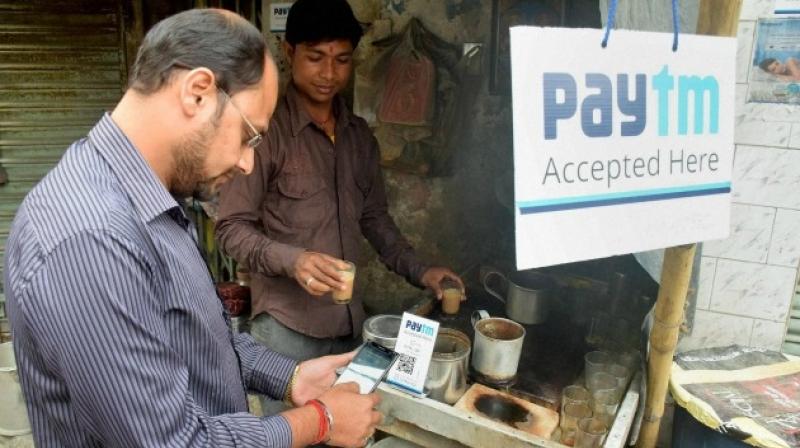
Explained: The what, when and why of Paytm’s $3-billion IPO
Paytm, promoted by entrepreneur Vijay Shekhar Sharma, has an ambitious plan to raise $3 billion through an IPO, which is likely to take place around November 2021; how is Paytm faring, what is its potential, and what is it offering its investors?

Paytm, which shot to fame with full-page ads on the front pages of leading newspapers a day after the demonetisation announcement, celebrating the digital payment ‘revolution’, has announced plans for an initial public offering.
The company, promoted by entrepreneur Vijay Shekhar Sharma, has an ambitious plan to raise $3 billion through a stock market debut, which is likely to take place around November 2021. It may, of course, alter the timing in line with the market situation.
According to a Bloomberg report, the merchant bankers for the IPO are Morgan Stanley, Citibank and JP Morgan. The company is also scouting for law firms to handle the legalities of the public issue.
How is Paytm faring, what is its potential, and what is it offering its investors?
Timing it right
One97 Communications Ltd, which runs Paytm, has begun preparations for the IPO already. Per media reports, the company’s board has given its formal green signal.
Financial experts have noted that Paytm is choosing the right time for its IPO. Amid the COVID pandemic, digital purchases and payments have shot up, and this bodes well for Paytm’s balance-sheet. Also, the positive trend could be the reason Paytm’s rival Mobikwik, as well as other start-ups such as Nykaa, Delhivery and Policybazaar, are looking at an IPO. Food delivery start-up Zomato has already filed for one.
Also read: Zomato’s promise of an IPO, bigger market
The IPO will offer an exit route to global investors such as Japan’s SoftBank Group Corp, Warren Buffet’s Berkshire Hathaway and Chinese conglomerate Ant Group, who have all made investments in Paytm. According to a PTI report, Paytm’s main shareholders are Alibaba’s Ant Group (29.7%), Softbank Vision Fund (19.6%), Saif Partners (18.6%), and Sharma (14.7%).
Some or all of the institutional investors may now exit the company through an offer for sale of their shares in the IPO. Many of these have stayed invested in the company for several years, and may look forward to a profitable exit.
Robust valuation
While Paytm — which was launched in 2010 —is still seeing losses, it should be remembered that very few online service providers are profitable. Also, it claims to have narrowed its loss by 40% in fiscal 2019-20, with an increase in revenue to ₹3,629 crore.
What is said to make the fintech start-up an attractive proposition is its robust valuation. The company and its merchant bankers are said to be targeting a valuation of $25-30 billion.
Paytm is also rated to be India’s highest valued unicorn (a start-up valued at over $1 billion). The company was last valued at $16 billion in 2019, when Softbank and Ant Financial invested $1 billion in it.
Wide portfolio
At over 1.4 billion transactions in March, Paytm claims to be India’s top digital transactions enabler. It is said to have onboarded about 20 million merchant partners. It also claims to be 30-50% larger than its peers in the digital payments segment, with over 1.4 billion monthly transactions.
While digital payments remain it bread and butter, Paytm has diversified, too. It offers end-to-end payments and financial services to individual consumers, offline and online merchants and online platforms. Paytm Insurance and Paytm Money are among its other key diversifications.
Paytm is stated to be a leading UPO payments firm in India, after PhonePe and Google Pay. Paytm Payments Bank — jointly owned by Sharma and One97 Communications — has over 6 crore accounts. Additionally, Paytm has applied for a New Umbrella Entity (NUE) licence. For this, it has tied up with other players such as Ola, IndusInd Bank, Zeta and Suryoday Small Finance.
While investment professionals typically advise investors to be cautious when it comes to putting money in loss-making entities, Paytm and other digital enterprises hold the promise of a good valuation. The fact that the company is quickly diversifying into related fields such as banking, insurance and mutual fund distribution could also work in its favour.


